Author:
Grace Gayoso Pasion
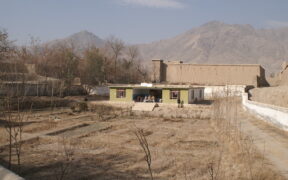
Introducing our new blog series that highlights local research produced with support from the D4I project, 'Going Local: Strengthening Local Capacity in General Local Data to Solve Local FP/RH Development Challenges.'

Reproductive health advocates in the Philippines faced a tough 14-year long battle to turn the Responsible Parenthood and Reproductive Health Act of 2012 into a landmark law in December 2012.
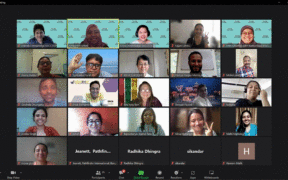
A synthesis of learnings from a cohort of family planning workforce members in Asia who came together to discuss what works and what doesn’t in engaging men and boys in FP/RH.
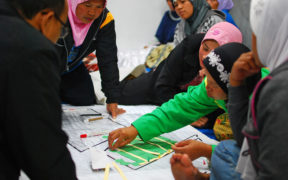
A peer assist is a knowledge management (KM) approach that focuses on “learning before doing.” When a team is experiencing a challenge or is new to a process, it seeks advice from another group with relevant experience. The Knowledge SUCCESS project recently used this approach to facilitate sharing of experiential knowledge between Nepal and Indonesia. Amid declining population growth in Nepal, the project used a peer assist to advocate for continuation of leadership, commitment, and funding allocation for family planning (FP).
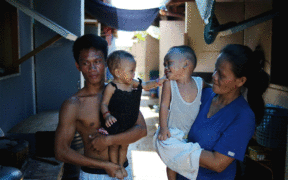
In November-December 2021, family planning and reproductive health (FP/RH) workforce members based in Asia convened virtually for the third Knowledge SUCCESS Learning Circles cohort. The cohort focused on the topic of ensuring continuity of essential FP/RH services during emergencies.
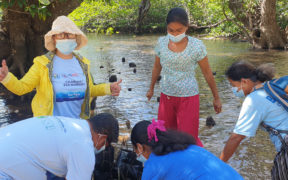
The Twin-Bakhaw project advocates for gender equity via sexual and reproductive health services among indigenous populations. Each newborn will have a “twin” mangrove seedling, which the newborn’s family must plant and nurture until it is fully grown. The project exemplifies the importance of family planning and reproductive health interventions in long-term environmental protection measures. This is part 1 of 2.

The Twin-Bakhaw project advocates for gender equity via sexual and reproductive health services among indigenous populations. Each newborn will have a “twin” mangrove seedling, which the newborn’s family must plant and nurture until it is fully grown. The project exemplifies the importance of family planning and reproductive health interventions in long-term environmental protection measures. This is part 2 of 2.













